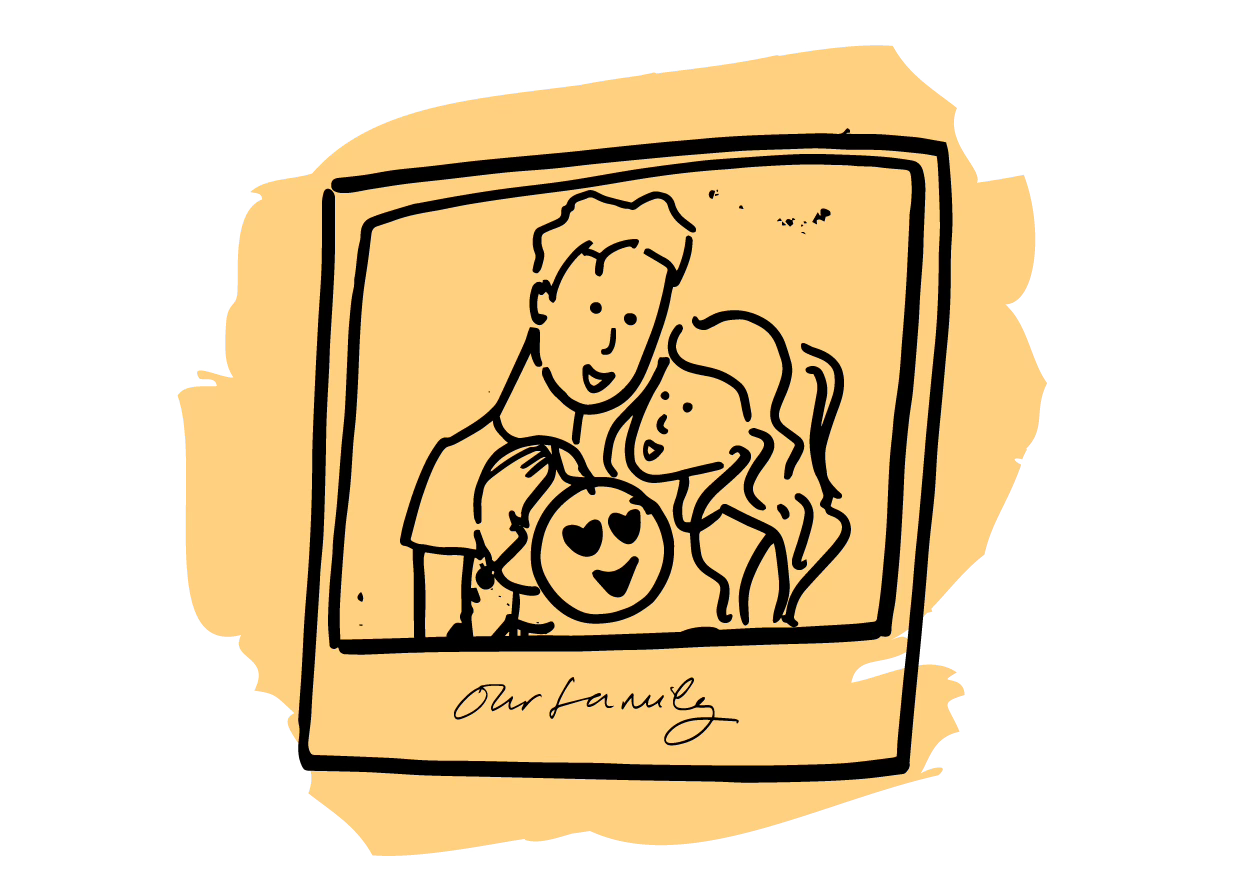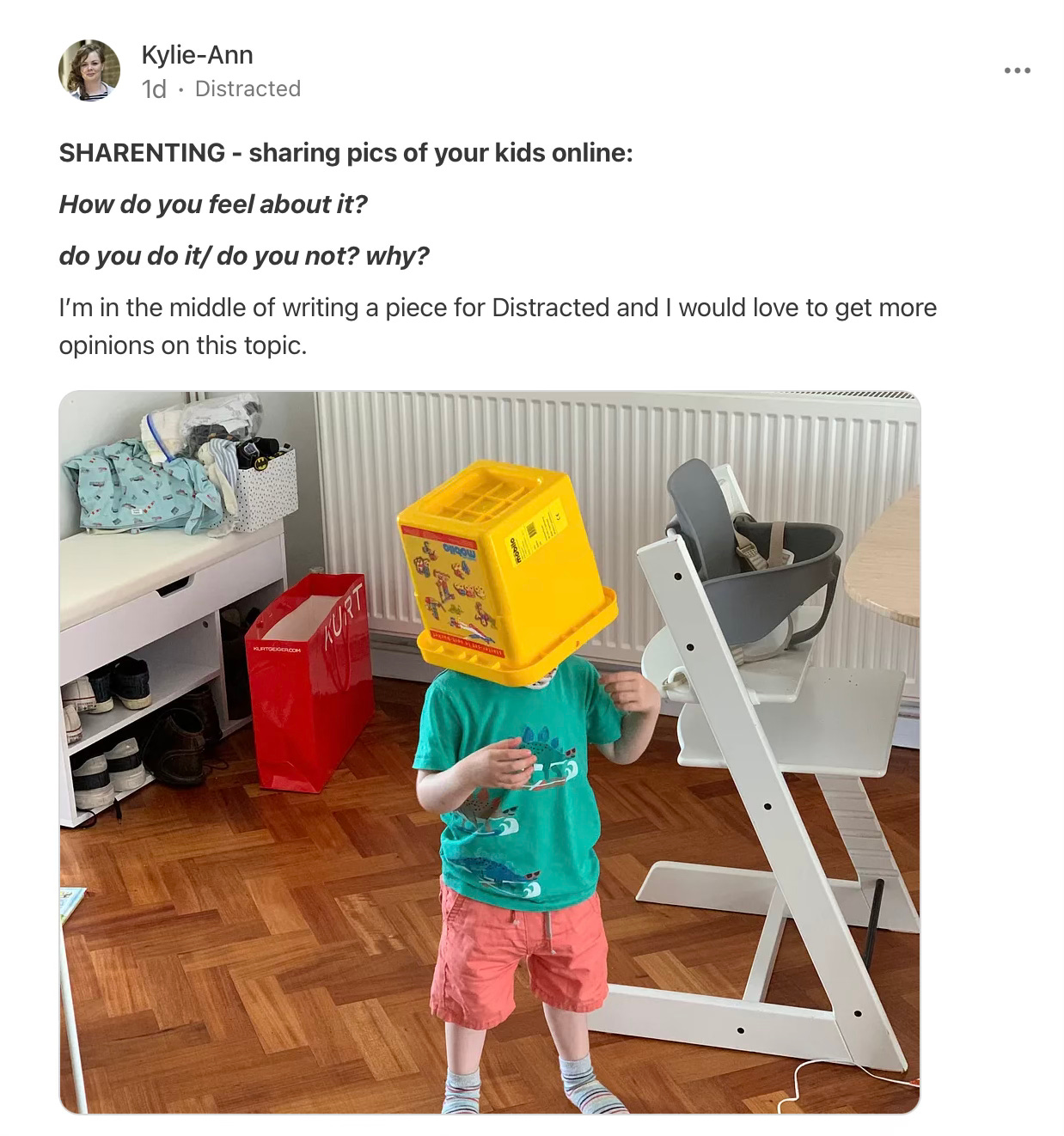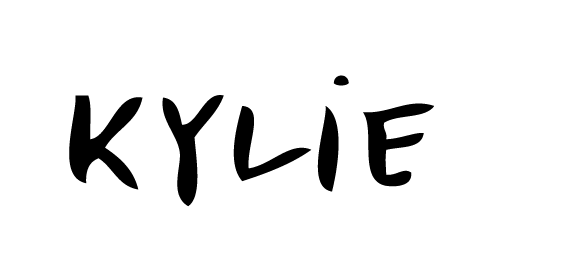Am I Oversharing Online?
Reconnecting with a long lost friend has me questioning how much I am sharing online
Back in early Spring I met with a friend in London, who I have not seen for a very long time. I won’t go into the detail of why we stopped seeing each other, because the reasons and timing are cloudy and I am bound to trip myself up, but I hadn't seen her in person for maybe 14 years. Let’s call her M.
At secondary school she was my best friend and we spent hours at each other’s houses (or on msn messenger) chatting about our dysfunctional families, the girls at school, politics, boys and all the big life questions we needed answering in our teens. We were very close, but we went to separate Universities, had a falling out and after graduation I stayed in London and she moved back home. Whilst we said we would meet again one day, we never did. We lost touch. That is until she messaged me on Instagram and suggested meeting up.
Before we met, I’m not ashamed to say I scoured Facebook and Instagram for clues as to what she was up to, but she literally gives nothing away. She is a very private person. (And she will hate that I am even writing about her, but I promise it’s only a tiny bit!) Yet when we met she knew a lot about me. She follows me on Instagram and her reading this newsletter was, she said, her reason for getting in touch.
I had so many questions for her and I realised for me there was this huge gap in my knowledge of her life. I had no idea where she worked, who she was living with - where she was living, if she had kids, or anything that had happened, in fact, since the year we graduated. I was shocked actually to see that she looked the same, as I hadn’t seen a picture of her in all that time, either. Fair enough, I thought, as she, unlike me, had not chosen to share that information with me before that point. I wasn’t supposed to know anything about her.
*
This week we were filling out forms for our eldest’s school start in September, and the question of sharing his image on social media arose. I was all ready to tick the usual boxes. I don’t mind if they want to use his face on their socials or websites or on printed materials, as long as his identity remains anonymous. But when I asked my partner his preferences, he didn’t want them to share his image outside of the school building. His boundaries different from mine.
*
I do sharent, as they call it. I share images of the children online. I limit my sharenting to sharing on a private Instagram, private in that I only broadcast these images to people I know in real life. M. is one of those people, even though we had otherwise lost touch.
I have always seen Instagram as a way to share images of our family life to friends and family without the hassle of having to message every single person when we have an update or the kids do something funny. It is a chance to stay connected with more people from the past and since having children, it has become more about them. I love seeing ex-colleagues and old class mates with their children too and so posting my own photos is very much in my mind a reciprocated joy.
When it comes to sharing my children’s image on Substack, or my writing Instagram (which is public), I have been more careful not to show their faces in full in order to keep their identity safe from the wider internet. It is not something I personally feel comfortable doing alongside writing quite confessional and honest accounts of our lives together. I am happy to be honest about my experiences as long as they are protected from the association.
For me there has to be a balance, so if my son’s image was shared on the school website as long as his name wasn't there he could be any one, so it doesn’t feel insecure, but when his image is alongside details about him in relation to my accounts of motherhood, that doesn’t feel right as it would give too much away.
I am not alone in feeling this way. When I asked the Distracted community what they thought of sharing information and photos of their children online, many people said when sharing pictures of their children, they would opt for unrecognisable shots where you may see the back of a child’s head, a mass of hair or a little hand. These are what
called “online-approved angles.”In sharing images of my children only privately and obscuring their faces and identity in public I thought I was a private person. But in meeting M. and gauging that my partner’s tolerance of sharing is actually much lower than my own, it made me wonder if I am oversharing. Perhaps, the balance that had made sense to me, isn’t appropriate anymore.
Rhiannon Lucy Cosslett wrote in the Guardian1 that she had noticed a change in how we as a generation feel about putting our kids faces (and lives) online:
“A few years ago, sharenting, as it’s been called, felt like the norm among my social circle. These days I see far fewer babies’ faces on social media.”
People are moving away from wanting to share images of their children and lives online, but is it over-sharing to do so or is it something we may one day have to accept.
A Family Record
wrote recently about putting her life and kids on the page: “a part of me hopes that the images we have, and the words I have written, will perhaps be a record for them, much, much later in life, of the things we shared together.”
The documentation of family life online or in books can be seen as a wonderful resource, which friends, family and even the children themselves can look back on and enjoy. Whether imagery or writing, it is a personal asset that the children in the future will likely feel lucky to have access to.
Keeping in Touch
In the present it can forge connection with friends and family, something which I am drawn to as I have found motherhood to be quite isolating. My children can bring smiles to other people’s faces, and that dopamine hit of a like, or a lovely comment can feel good, if only for a while.
It could be argued, though, that to share these images in order to keep in touch with people from the past is a fool’s errand. In casting the net so wide, reaching all the people who I have worked with or been in education with is in fact not keeping in touch with anyone at all. I may not be forging any connections despite my intentions. Whilst people may know things about me, like M., they may not feel connected to us and we may not be maintaining any sort of relationship outside of social media.
Identity Theft
I enjoy sharing images, but I am terrified of their identities being stolen or it somehow adding to an elaborate kidnapping, in which I will be blamed for sharing their whereabouts or their regular movements. Even as an ex-colleague or ex-school-friend of someone who has shared an image of their new baby on Instagram, I do feel strange knowing the exact day, time and location of the child’s birth. A child that I will likely never meet.
These details are after all prime password inspiration territory and it doesn’t seem necessary to me to share that information with any one. It is that sort of detailed information that is best reserved for a WhatsApp message or a good old fashioned post-card. But if I am so against sharing personal information such as their birthday, why is sharing their face okay, even to a limited number of people? What could be more personal than someone’s face?
The Threat of A.I
Meta announced recently that they are planning to utilise imagery on their platforms to train their A.I. I’m not entirely sure what this means in practical terms but it worries me that I am sharing images that I am intending to share with a limited list of people I know, yet Meta can share it with whoever they like via. A.I. I have this fear that I will walk past a billboard one day and see my own son’s face merged into a picture of someone else’s body. “Made by A.I” it will say in the small print and I would have no idea how that image came to be there and yet of course my original sharing of the image would make me responsible.
In truth, and perhaps this is something I am only just realising, sharing on my personal Instagram isn’t the closed circle I thought it was. By uploading imagery to the internet, it’s hard to say where it will end up. Much like sending a postcard to a friend, you can’t control what happens once they have received the image, or who comes across it en route. Most people probably put it in the recycling, but you can’t be sure it has been destroyed. In broadcasting to a small list on Instagram, I am sending postcards effectively to 180 people, which seems ridiculous. Is that something I want or indeed need to do?
Trust & Communication
There is an element of trust in what people do with the image once they have seen it. On WhatsApp for example, it is easy to forward images that aren’t technically yours to share. A warning perhaps that communication between friends and family on what the sharenting preferences are for a child is probably needed. When I asked the Distracted community, it was clear that conveying these preferences to family and friends isn’t always easy, but is necessary.
Rhiannon Lucy Cosslett acknowledges in her piece on sharenting, that opinions on the matter are not fixed.
“[I] also recognise that these decisions are often in flux. Many parents, for instance, might stop sharing once their bald little infants start to look more like identifiable people.”
Age of Consent
The children, when they are older, will have their own opinions on the matter, whether it is sharing their image or details of their lives.
explains that her children, who feature in her memoirs and are regularly photographed on her social media, can opt out at any point.“I would not exactly call any of my kids shy. If they don’t want to be photographed they say so and are not included in the shot. That’s pretty straight forward.”
The threshold for when a child is mature enough to make this decision seems to also be a personal decision. Legally we don’t have much say on anything until we become adults at 18 years old (in the UK anyway) but to my mind, children as young as ten could probably make an informed decision on the matter.
But as for being truly informed, I am conscious that my own anxiety about this is likely induced by a fear of the unknown, rather than knowledge of what could actually happen.
I worry about identity fraud, photo manipulation and usage without consent, but there could be much more to it that that but also those potential events may be statistically unlikely - especially with a limited reach. I just don’t know. Without really knowing the risks how can we make informed decisions either way?
Is Sharing Inevitable?
I think my friend M. is perhaps an extreme example of someone who has a very minimal online presence. My partner too, has no social media accounts and doesn’t share anything online, which is unusual for Millennials. Of course there are people at the influencer end of the spectrum who share everything in what seems to be every moment of their lives. I see myself as somewhere towards the private end, but in wanting to grow an online platform, is that a contradiction? To want to share and to be honest and open about my experiences of motherhood, yet not share everything and every detail.
For many writers and artists, sharing personal stories about their families is key to their art, but that doesn’t mean it shouldn’t be questioned. In relation to her book, Twelve Moons, in which
recounts a year in her life as a single parent to her four daughters, she says:“I had difficult conversations with my agent and my editor, with friends and family, and of course with my children, about what writing the book meant in terms of the collision between creativity and privacy. Ultimately the desire to share the story of a hidden woman and the reality of mothering and caring alone was stronger than the fear of judgement.”
In her Substack piece Always Light, she explains how she took steps to protect people in her book, Twelve Moons. For example, her daughters are characters in the book, denoted by their qualities, rather than their names. In the book they are The Mermaid, The Whirlwind, The Caulbearer and The Littlest One.
Obscuring names was a common theme when I asked the Distracted community how they felt about sharing information and pictures of their children online.
explained that she did this to prevent the stories of motherhood that may involve her children from being associated with them in the future.explained in her piece that she doesn’t share everything that happens to her in her memoirs or online, and it is a reminder that everyone has boundaries even if they aren’t obvious to us as outsiders.“I also don't use their names, because I don't want someone to be able to Google their name in future and find a piece from their mother talking about personal moments from their childhood.”
Sharing is also very much part of her purpose as a writer. Sharing adds value with memoirs that resonate and help people see themselves and understand their own lives, something she feels like she can’t achieve without the openness she offers in her writing.
“Seeing their own life in mine helps people feel less weird or alone of confused. And that’s a massive source of joy and a huge part of the reason I write.”
In sharing she adds value to her work and Instagram, she remarked in a recent interview with
, adds a new layer which she calls a “living memoir”.2Similarly,
explained that the unspoken moments of motherhood are important to share, making it all the more important to dissociate our children from it to allow us to be as open and honest as we are able.“I think those moments are important to talk about because the reality of motherhood needs to be out in the open, so I want to talk about my experience but keep them as far out of it as possible.”
For writers and artists, sharing is part of the process, but the amount people are comfortable sharing differs even among those with similar intentions.
Everyone is different and the evaluation of oversharing should very much be taken as case by case. In every family there will be different reasons to share or not to share.
As with most parenting choices, it is important to do what is right by your family.
I think it is important, though, to set the boundaries in relation to sharing online. I had thought I had them figured out with a private Instagram and no identifiable imagery on Substack, but with Meta’s announcement and the realisation that my partner has a much lower tolerance for sharing, I am conscious now that I need to re-evaluate my position and align it with his and that when our children are older, those boundaries may change again. But whatever the boundaries, it’s important that as a family we are all on the same page.
Thank you to all the contributors of this piece from my Substack Note
Thank you for reading. If you enjoyed Distracted please do share this post with a friend.
If this post resonated with you, I would love to hear your story.
Please do join me in the comments.
What is your approach to sharenting?
Do you share your children’s lives online? How has this evolved over time?
If you enjoy Distracted and would like to support my writing, but can’t afford to upgrade to a paid subscription, you can buy me a coffee – it’s a one off £4 payment and it will mean the world to me. Thank you to every one who has been generous enough to donate so far.
I resist sharenting on social media… Rhiannon Lucy Cosslett, the Guardian, Nov 2023.
Lily and Clover talking Memoir and Self Transformation, Lily Dunn, And a Dog, June 2024.








As a writer working on a memoir I love hearing the note about creating character names for the author’s daughters!
A very interesting read 👍 I do agree 100% that it is completely up to each family indivually to agree what is right for them. Although that is not always easy with varying opinions within the same household. I think leaning more towards the safer side is probably sensible, although I think it can become a bit over the top and unnecessarily anxiety enducing for some. On a side note... Copywrite law means AI can't 'steal' your photos without written permission. Anyone who uses your writing and/or photos without your permission is breaking the law. Reasonable length quotes are ok, but vital that you Name the author. Just in case anyone didn't know 😉